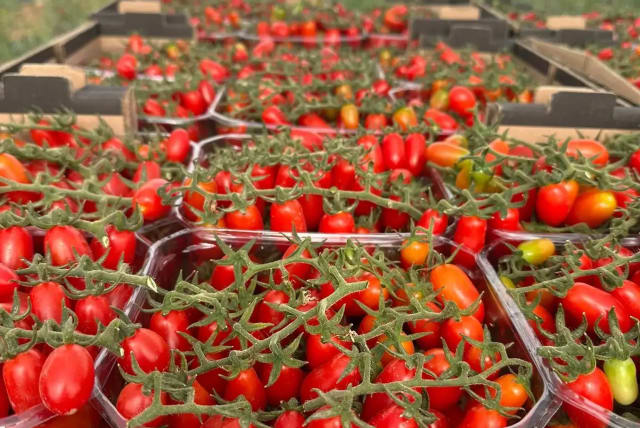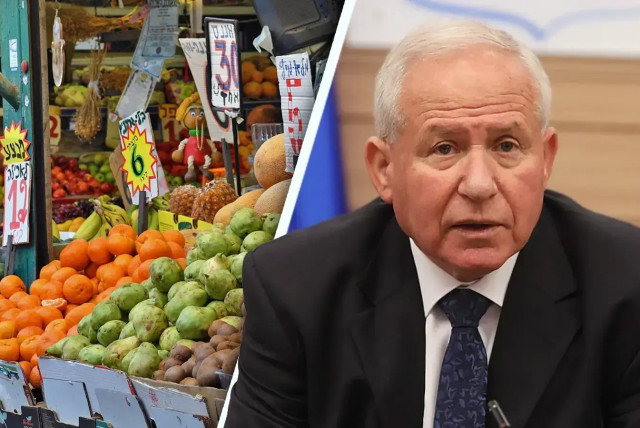Tomato shortage looms as Israeli farmers struggle

Victory chain CEO criticizes Agriculture Ministry for inadequate response, urges action to prevent imports
The warnings issued by supermarket chains are now becoming a reality as Eyal Ravid, owner of the Victory chain, predicts an impending shortage of vegetables, particularly tomatoes.
This shortage is primarily due to a lack of skilled workers available for harvesting and sowing crops for the next season. Ravid expressed his frustration, stating that his vegetable manager is desperately searching for tomatoes in vain, as they are nowhere to be found in the market. The scarcity extends to other produce such as zucchini and cucumbers, leaving the entire country dependent on vegetable imports from Turkey.
In an attempt to address the crisis, Ravid penned a letter to Economy Minister Nir Barkat, pleading for assistance on behalf of farmers who are struggling to keep Israeli agriculture alive. Ravid emphasized the urgency of the situation, as he warned that without immediate action, Israeli produce will be scarce in the coming months. He stressed the need to initiate a national seeding operation without delay.
The Agriculture Ministry has been under scrutiny by farmers who feel abandoned in dealing with the shortage of foreign workers, such as those from Thailand. Farmers like Yigal Ben Mukha, owner of the "Tomato" brand, express frustration at the lack of assistance from the ministry in handling the return of foreign workers. The bureaucratic process involved in their return, which includes coordination between the Interior, Labor, and Agriculture Ministries, has been neglected. Farmers feel ignored and abandoned by the government, only receiving attention during times of conflict and emergency situations.
Ravid proceeded to highlight the importance of addressing the labor shortage promptly. He estimated that 500 workers are needed urgently for a thirty-day period to manage the current crisis effectively. He insisted that even if the price of tomatoes needs to be increased to secure supply, he is willing to pay, as the alternative is relying solely on imports.
The Agriculture Ministry responded to the criticism, acknowledging the labor shortage of approximately 30,000 workers since the start of the conflict. They stated that the ministry is actively working with the Population and Immigration Authority and the Foreign Ministry to establish bilateral agreements with other countries. An agreement with Sri Lanka has already been signed to bring in workers immediately.
Additionally, the government has approved the entry of 5,000 foreign workers in agriculture through a private recruitment agency.
The ministry assured that they are also committed to supporting the recruitment of Israeli workers in agriculture by offering incentives of between NIS 3,000 and NIS 8,000 per employee for three months. They encourage farmers to explore alternative areas within the country for sowing and planting. Furthermore, the ministry is working alongside the Ministry of Finance to reduce production costs and provide dedicated budgets to rehabilitate agriculture in affected regions.
It is crucial for the government to prioritize the agricultural sector and initiate immediate measures to alleviate the labor shortage. By supporting local farmers and ensuring a robust workforce, Israel can maintain its self-sufficiency in agriculture and prevent heavy reliance on imports.
Jerusalem Post Store
`; document.getElementById("linkPremium").innerHTML = cont; var divWithLink = document.getElementById("premium-link"); if (divWithLink !== null && divWithLink !== 'undefined') { divWithLink.style.border = "solid 1px #cb0f3e"; divWithLink.style.textAlign = "center"; divWithLink.style.marginBottom = "15px"; divWithLink.style.marginTop = "15px"; divWithLink.style.width = "100%"; divWithLink.style.backgroundColor = "#122952"; divWithLink.style.color = "#ffffff"; divWithLink.style.lineHeight = "1.5"; } } (function (v, i) { });


